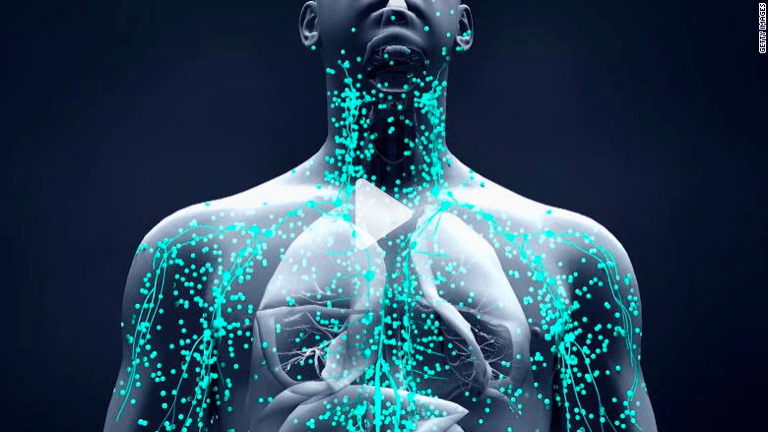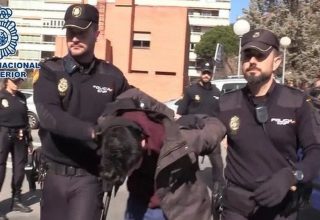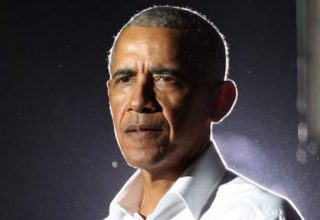
The United Kingdom has become the first Western nation to approve a Covid-19 vaccine, a landmark moment in the coronavirus pandemic that paves the way for the first doses to be rolled out across the country next week.
“Help is on the way,” Health Secretary Matt Hancock announced Wednesday morning, after UK regulators granted emergency authorization for a vaccine made by US pharma giant Pfizer and its German partner BioNTech.
A final analysis of the Phase 3 trial of Pfizer’s vaccine shows it was 95% effective in preventing infections, even in older adults, and caused no serious safety concerns, the company said last month.
The announcement means the UK has vaulted past the United States and European Union in the race to approve a vaccine, months into a pandemic that has killed almost 1.5 million people worldwide. Pfizer CEO Albert Bourla hailed the emergency authorization as “a historic moment in the fight against Covid-19.”
The UK has ordered 40 million doses of the vaccine — enough to vaccinate 20 million people. Hancock told the BBC that an initial 800,000 doses would be available in the UK next week, and “we’ll then deploy it at the speed that it’s manufactured” by Pfizer at its facilities in Belgium. The bulk of the rollout will come next year.
Elderly people in care homes, along with health workers and other vulnerable people, will be top of the priority list.
In a statement, the health department said the approval “follows months of rigorous clinical trials and a thorough analysis of the data by experts at the [Medicines and Healthcare products Regulatory Agency (MHRA)] who have concluded that the vaccine has met its strict standards of safety, quality and effectiveness.
“The Joint Committee on Vaccination and Immunisation (JCVI) will shortly publish its latest advice for the priority groups to receive the vaccine, including care home residents, health and care staff, the elderly and the clinically extremely vulnerable.”
Prime Minister Boris Johnson hailed the news as “fantastic” in a tweet, adding that “it’s the protection of vaccines that will ultimately allow us to reclaim our lives and get the economy moving again.”
How the vaccine will be rolled out
The Pfizer/BioNTech vaccine employs a new approach to making vaccines that uses a piece of genetic material called messenger RNA to prompt the body to make synthetic pieces of the coronavirus and stimulate an immune response. But MRNA is very fragile, so the vaccine must be kept at ultracold temperatures, meaning special storage equipment is required.
Speaking to Sky News, Hancock said there would be “a combination of three modes of delivery.” The first will be hospitals, with 50 set up to handle the vaccine and waiting to receive doses. This will be followed by vaccination centers, which he said were being set up now, before a “community rollout” including doctors’ offices and pharmacists.
But he noted the need for the Pfizer vaccine to be stored at minus-70 degree Celsius (minus 94 Fahrenheit) temperatures — unlike Oxford University and AstraZeneca’s vaccine, which has not yet been approved.
“They’ll [doctors and pharmacists] also be there should the AstraZeneca vaccine be approved, because that doesn’t have these cold storage requirements and so is operationally easier to roll out, but I just want to thank all of the scientists at BioNTech and Pfizer, who are manufacturing this who we’ve worked so closely with.”
UK regulators and officials were set to release further details on why they approved the Pfizer vaccine — and who gets it first — later Wednesday.
“It’s according to clinical need,” Hancock told the BBC. “The goal is to save as many lives as possible and stop hospitalizations.”
He said the rollout would start with the most elderly, people in care homes and their carers, with NHS staff also high on the priority list. “And also the clinically extremely vulnerable who we’ve supported throughout this crisis, those who are particularly vulnerable to coronavirus.”
It then “essentially comes down the age range,” he added.
Hancock urged Britons to listen to doctors, nurses and “expert voices, those who’ve been involved in this program and listen to the independent regulator.”
“They have done the checks and they know that this is safe and ready … safe to the high clinical standards that they require,” he said.
‘A historic moment’
It marks the first time that citizens outside of the worldwide clinical trials will have the opportunity to be immunized against Covid-19, according to BioNTech CEO Ugur Sahin.
“To aid the success of the vaccination program it is vital everyone continues to play their part and abide by the necessary restrictions in their area so we can further suppress the virus and allow the NHS to do its work without being overwhelmed,” a spokesperson from the UK health department said in a statement.
“The vaccine will be made available across the UK from next week. The NHS has decades of experience in delivering large scale vaccination programs and will begin putting their extensive preparations into action to provide care and support to all those eligible for vaccination,” the statement added.
“This authorization is a goal we have been working toward since we first declared that science will win, and we applaud the MHRA for their ability to conduct a careful assessment and take timely action to help protect the people of the UK,” Bourla, the Pfizer CEO, said in a statement.
Sahin added that the regulatory data was the result of “a scientifically rigorous and highly ethical research and development program.”
Other countries, including the US, are considering approval for various coronavirus vaccines before the end of the year.
BioNTech and Pfizer submitted their vaccine candidate to the US Food and Drug Administration (FDA) in mid-November. They have also submitted to the EU’s European Medicines Agency.
Source: CNN




















